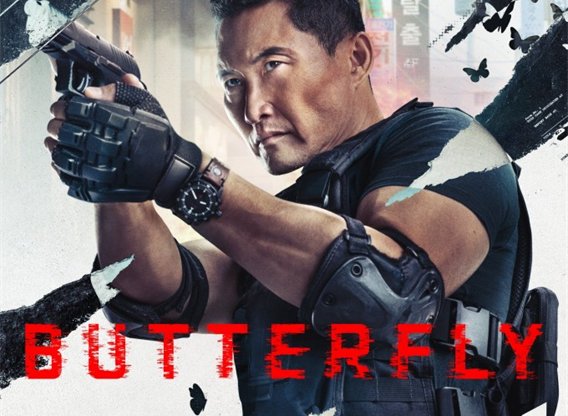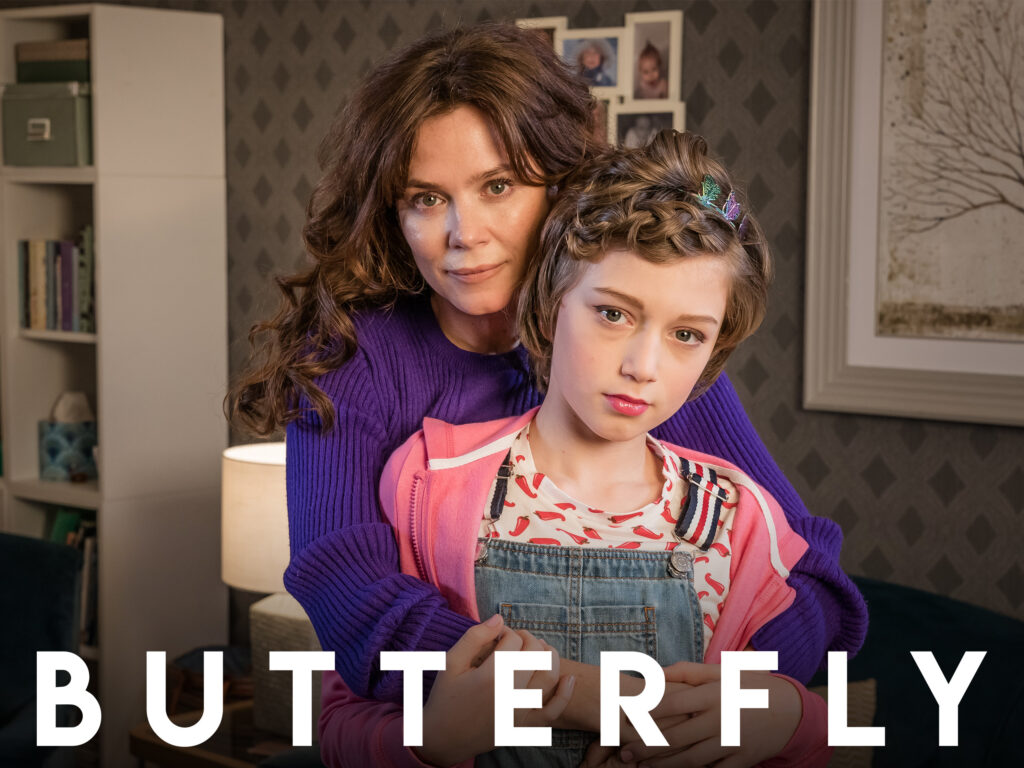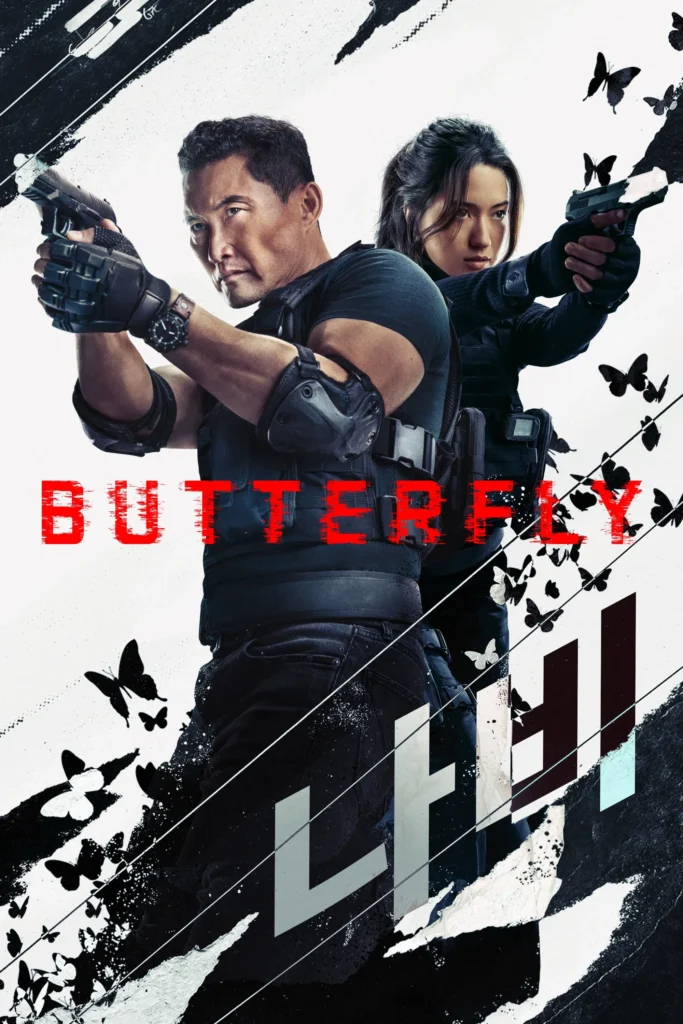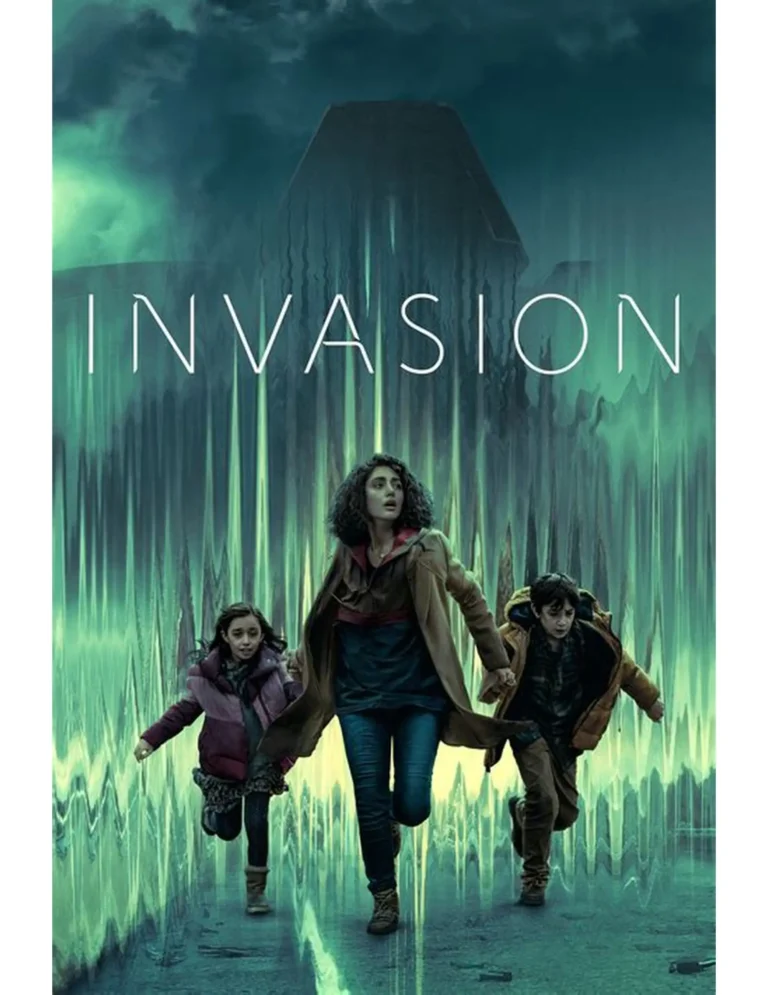
Butterfly
Butterfly (2025) is one of the most anticipated Indian series of the year, blending action, thriller, and espionage genres. Directed by Ken Woodruff and Steph Cha, and starring Daniel Dae Kim, Reina Hardesty, and Kim Ji-hoon, this Korean-language series is scheduled for release on August 13, 2025, on Prime Video.
Movie Overview
Butterfly is a character-driven spy thriller that delves into the complex world of global espionage and intricate family dynamics. The series follows David Jung (played by Daniel Dae Kim), a former U.S. intelligence operative now living in South Korea. His past decisions come back to haunt him when a deadly sociopathic agent, Rebecca (Reina Hardesty), is assigned to eliminate him. As the story unfolds, David must confront his past and navigate a treacherous path to survival.
Attribute Details
- Title: Butterfly
- Genre: Action, Thriller, Espionage
- Language: Korean
- Release Date: August 13, 2025
- Director: Ken Woodruff, Steph Cha
- Writer: Ken Woodruff, Steph Cha

Cast & Crew
The series boasts a talented ensemble cast:
- Daniel Dae Kim as David Jung
- Reina Hardesty as Rebecca
- Kim Ji-hoon as Gun
- Kim Tae-hee as Juno
- Piper Perabo as Olivia
- Louis Landau as Oliver Barnes
- Charles Parnell as Senator George Dawson
- Park Hae-soo as Kim
- Sung Dong-il as Director Lee
- Lee Il-hwa as Mrs. Kim
Production & Filming
Butterfly is produced by 3AD and BOOM! Studios, with executive producers including Daniel Dae Kim, John Cheng, Stephen Christy, Ross Richie, and Arash Amel. The series is developed under 3AD’s first-look deal with Amazon MGM Studios. The first two episodes are directed by Kitao Sakurai. Filming locations include various sites in South Korea, providing an authentic backdrop to the series’ intense narrative.
Plot Synopsis
David Jung, a former U.S. intelligence operative, leads a quiet life in South Korea. However, his past resurfaces when Rebecca, a highly skilled and sociopathic agent, is dispatched to eliminate him. As Rebecca closes in, David must confront the consequences of his previous actions and navigate a dangerous game of cat and mouse. The series explores themes of redemption, trust, and the blurred lines between right and wrong in the world of espionage.
Visual Style & Cinematography
The series employs a sleek and modern visual style, with dynamic cinematography that enhances the tension and drama. The use of contrasting lighting and urban landscapes reflects the duality of David’s life and the high-stakes world of espionage. The action sequences are choreographed to provide a realistic portrayal of combat and strategy, keeping viewers on the edge of their seats.
Musical Score
The musical score for Butterfly is composed by a renowned artist, whose work complements the series’ intense atmosphere. The music blends traditional Korean instruments with modern electronic elements, creating a unique soundscape that underscores the emotional and action-packed moments of the series.
Audience Expectations
With its compelling storyline, strong performances, and high production values, Butterfly is poised to captivate audiences worldwide. The series’ exploration of complex characters and moral dilemmas, set against the backdrop of global espionage, offers a fresh take on the genre. Fans of action thrillers and character-driven narratives can look forward to an engaging and thought-provoking viewing experience.
David Jung’s Personal Transformation
In Butterfly, David Jung evolves from a quiet, retired intelligence officer to a strategic and morally reflective hero. His journey highlights resilience, intelligence, and emotional growth as he confronts threats from his past. The series emphasizes how personal choices and past actions shape the present, making his character arc compelling and relatable.
Rebecca’s Role as Antagonist
Rebecca, portrayed by Reina Hardesty, serves as both a formidable adversary and a mirror to David’s own past decisions. Her cunning and sociopathic tendencies add tension to the narrative, creating suspense and forcing David to navigate moral and strategic dilemmas. Butterfly uses her character to explore the complexity of human behavior in high-stakes scenarios.
Espionage Tactics and Strategy
The series showcases modern espionage techniques, including surveillance, cyber operations, and covert infiltration. Butterfly presents these tactics in a realistic and thrilling way, allowing viewers to understand the precision and intelligence required in the spy world.
Family Dynamics in Espionage
David’s family relationships provide an emotional anchor amid the series’ high-stakes espionage. Butterfly explores how secrecy and danger affect personal bonds, highlighting the sacrifices and challenges that come with a life connected to intelligence work.
Trust and Betrayal
Trust is a recurring theme in Butterfly. Characters are constantly navigating alliances and betrayals, reflecting the precarious nature of spy work. The series examines how loyalty, suspicion, and deception influence decisions and outcomes.
Global Political Implications
Beyond personal conflicts, Butterfly incorporates geopolitical intrigue, highlighting international espionage and intelligence conflicts. These layers add depth to the narrative, providing context for David’s actions and showing the broader consequences of espionage.
Character Complexity and Morality
The series avoids one-dimensional characters, presenting both heroes and antagonists with nuanced motivations. Butterfly explores moral ambiguity, forcing viewers to consider ethical dilemmas in espionage, including the balance between duty, survival, and morality.
Action Choreography
Combat sequences in Butterfly are carefully choreographed to blend realism with cinematic style. Hand-to-hand combat, gunplay, and tactical maneuvers are depicted with precision, enhancing the suspense and intensity of action scenes.
Cinematic Locations and Setting
The series uses real-world urban and rural settings in South Korea to provide authenticity. Butterfly leverages these locations to enhance narrative tension and to reflect the diverse environments in which espionage operations occur.
Emotional Tension and Psychological Depth
Butterfly delves into the psychological impact of espionage on its characters. Fear, guilt, and moral conflict are explored in depth, adding emotional weight to the action-driven narrative and creating a multi-layered viewing experience.
Dialogue and Storytelling
The series combines fast-paced, suspenseful dialogue with reflective and introspective moments. Butterfly uses dialogue to reveal character motivations, advance the plot, and explore philosophical questions about morality, loyalty, and human behavior.
Costume Design and Symbolism
Costumes in Butterfly are carefully designed to reflect character traits and operational roles. Sleek suits, tactical gear, and casual attire are used to convey status, professionalism, and psychological nuances of characters.
Use of Technology in Espionage
Modern technology plays a central role in Butterfly. From hacking and surveillance to encrypted communications, the series realistically depicts how technology can be both a tool and a vulnerability in intelligence work.
Interpersonal Relationships and Conflict
Complex relationships between characters drive narrative tension in Butterfly. Friendships, alliances, and romantic entanglements are tested under pressure, creating layered character dynamics that enhance engagement.
Visual Symbolism and Themes
Butterfly uses visual motifs such as butterflies, mirrors, and shadows to symbolize transformation, duality, and deception. These symbols reinforce thematic elements and reward attentive viewers with deeper interpretive layers.
Plot Twists and Suspense
The series incorporates unexpected plot twists that keep audiences engaged. Strategic misdirections, betrayals, and surprising revelations create suspense and ensure viewers remain invested throughout the episodes of Butterfly.
Female Empowerment
Rebecca’s character is a strong example of female agency in a high-stakes thriller. Butterfly highlights her intelligence, skill, and autonomy, providing a balance to the male-dominated espionage narrative and offering commentary on gender roles.
Production Design and Art Direction
The visual aesthetic of Butterfly is enhanced by meticulous production design. Interiors, props, and set details are used to reflect operational realism, character personalities, and the high-stakes tension central to the series.
Global Audience Engagement
Butterfly is available on Amazon Prime Video with multilingual subtitles, making it accessible to an international audience. Its universal themes of survival, morality, and human resilience resonate across cultural boundaries.
Foreshadowing and Narrative Techniques
The series employs foreshadowing, flashbacks, and parallel storylines to create narrative complexity. Butterfly challenges viewers to anticipate outcomes and piece together character motivations, enhancing the intellectual engagement of the series.
Critical Anticipation
Even before its release, Butterfly has garnered attention from critics and audiences due to its strong cast, intriguing premise, and high production values. Expectations are high for it to be both a commercial and critical success.
David Jung’s Moral Dilemmas
In Butterfly, David Jung frequently faces moral dilemmas that test his integrity and judgment. From choosing whether to protect loved ones or complete missions to balancing loyalty with survival, these challenges deepen his character and engage viewers with thought-provoking ethical questions.
Rebecca’s Psychological Complexity
Rebecca is not a stereotypical villain. Butterfly explores her psychological depth, revealing her motivations, fears, and past traumas. This adds layers to the narrative, making her more than just an adversary and highlighting the human side of even the most dangerous characters.
Intelligence Operations Realism
The series provides a realistic depiction of intelligence operations, including surveillance, cryptography, and undercover work. Butterfly emphasizes the meticulous planning, strategy, and quick decision-making required in espionage, making it appealing to fans of authentic spy narratives.
Family and Emotional Stakes
David’s relationship with his family adds emotional resonance to the series. Butterfly portrays the tension between professional duty and personal attachment, illustrating the sacrifices and emotional burdens faced by those in high-risk professions.
Interpersonal Tension and Alliances
Complex relationships drive the plot in Butterfly. Alliances form and dissolve based on trust, deception, and mutual interests, providing narrative tension and demonstrating how personal and professional lives intersect in espionage.
Espionage Ethics
The show frequently examines the ethics of espionage. Butterfly raises questions about the moral boundaries of intelligence work, the cost of deception, and the impact of decisions on both individuals and nations, engaging viewers in philosophical reflection.

Action Sequences and Realism
Action sequences are choreographed with precision, combining realism with cinematic flair. Butterfly ensures that hand-to-hand combat, chase scenes, and tactical maneuvers feel authentic, enhancing suspense and excitement for the audience.
Cultural Depiction and Global Appeal
While set primarily in Korea, Butterfly incorporates international locations and geopolitical dynamics, making it appealing to a global audience. The series highlights cultural nuances while presenting universally relatable themes of loyalty, courage, and survival.
Visual Storytelling Techniques
The series uses visual storytelling to reinforce plot and character development. Lighting, color schemes, and camera angles reflect mood and tension, allowing viewers to experience the narrative on both intellectual and emotional levels.
Use of Symbolism
Butterfly employs symbolism to enhance thematic depth. Butterflies represent transformation and fragility, shadows reflect moral ambiguity, and recurring motifs highlight the duality of trust and deception in the world of espionage.
Character Growth Over Episodes
David, Rebecca, and supporting characters undergo significant growth throughout the series. Butterfly explores how experiences, challenges, and relationships shape their development, offering viewers a layered and dynamic storytelling experience.
High Stakes and Suspense
The series maintains high tension through unexpected plot twists, betrayals, and strategic maneuvers. Butterfly keeps viewers engaged by balancing suspenseful action with moments of introspection and emotional reflection.
Psychological Tension
Butterfly emphasizes psychological tension between characters. Mind games, strategic deception, and emotional manipulation create a layered narrative where intelligence and intuition are as crucial as physical skill.
Female Agency in Espionage
Rebecca and other female characters in Butterfly are portrayed with autonomy and strength. Their intelligence, strategy, and moral complexity provide a counterbalance to male characters, promoting a nuanced depiction of gender in high-stakes narratives.
Sound Design and Atmosphere
The sound design of Butterfly enhances tension and emotional impact. Subtle audio cues, background scores, and diegetic sounds create immersive environments that heighten suspense and reflect the inner states of characters.
Global Threats and Storyline Scope
The series expands beyond personal vendettas to explore global threats and intelligence conflicts. Butterfly situates individual characters within broader geopolitical narratives, increasing stakes and narrative complexity.
Strategic Decision-Making
David’s decisions are portrayed as carefully calculated, demonstrating intelligence and foresight. Butterfly highlights how strategic thinking, risk assessment, and ethical consideration intersect in high-pressure situations.
Character Relationships and Emotional Depth
Relationships in Butterfly are central to narrative engagement. Friendships, rivalries, and romantic entanglements provide emotional stakes that complement espionage action, creating a multifaceted storyline.
Technology and Modern Espionage
The use of technology in surveillance, communication, and intelligence-gathering is central to the series. Butterfly accurately depicts the advantages and vulnerabilities associated with modern espionage, adding realism and complexity.
Anticipated Viewer Impact
With its blend of action, suspense, and psychological complexity, Butterfly is expected to captivate audiences worldwide. Themes of morality, strategy, and personal growth resonate with viewers, ensuring both engagement and critical discussion.
Frequently Asked Questions (FAQs) about Butterfly (2025)
1. What is Butterfly (2025) about?
Butterfly (2025) is a Korean-language spy thriller series that follows David Jung, a former U.S. intelligence operative, as he navigates threats from his past and faces a deadly agent named Rebecca.
2. Who are the main actors in Butterfly (2025)?
The main cast includes Daniel Dae Kim as David Jung, Reina Hardesty as Rebecca, and Kim Ji-hoon as Gun, among others.
3. When will Butterfly (2025) be released?
Butterfly is scheduled for release on August 13, 2025, on Amazon Prime Video.
4. Who directed Butterfly (2025)?
The series is directed by Ken Woodruff and Steph Cha.
5. What genre does Butterfly (2025) belong to?
Butterfly is a mix of action, thriller, and espionage genres.
6. In what language is Butterfly (2025) available?
The primary language of the series is Korean, with subtitles available in multiple languages for international audiences.
7. Who are the writers of Butterfly (2025)?
The series is written by Ken Woodruff and Steph Cha.
8. Where was Butterfly (2025) filmed?
The series was filmed in various locations across South Korea to provide authentic settings for its espionage narrative.
9. What themes does Butterfly (2025) explore?
Key themes include morality, loyalty, trust, personal transformation, and the ethical complexities of espionage.
10. Is Butterfly (2025) suitable for international viewers?
Yes, Butterfly is available on Amazon Prime Video with subtitles in multiple languages, making it accessible globally.
11. What is the character of Rebecca like?
Rebecca, played by Reina Hardesty, is a highly skilled and sociopathic agent. She serves as David Jung’s adversary and represents a complex, morally ambiguous character in the series.
12. Does Butterfly (2025) include action sequences?
Yes, the series features meticulously choreographed action scenes, including combat, tactical maneuvers, and espionage missions.
13. How many episodes will Butterfly (2025) have?
The official episode count has not been confirmed, but the first season is expected to follow a standard streaming format with multiple episodes released weekly.
14. Who produced Butterfly (2025)?
Butterfly is produced by 3AD and BOOM! Studios, with executive producers including Daniel Dae Kim, John Cheng, and others.
15. Where can I watch Butterfly (2025)?
Butterfly will be exclusively available for streaming on Amazon Prime Video starting August 13, 2025.
16. Who composed the music for the series?
The series features a unique musical score blending traditional instruments with modern electronic elements to enhance suspense and emotional impact.
17. Are there any notable filming locations?
Scenes were shot across various urban and rural locations in South Korea, chosen to reflect authenticity and provide a visually compelling backdrop for the espionage narrative.
18. What streaming platform will host the show?
The show will be available exclusively on Amazon Prime Video, allowing international audiences to access it with multilingual subtitles.
19. Is the series suitable for all age groups?
The series contains action and suspense themes that may be more suitable for mature audiences. Viewer discretion is advised for younger viewers.
20. Will there be multiple seasons?
While only the first season has been officially announced, the storyline and complex character arcs suggest the potential for future seasons, depending on audience reception and viewership.

21. Who are the main antagonists in the show?
The story features several skilled and morally complex adversaries who challenge the protagonist, creating tension and driving the suspenseful narrative forward.
22. How realistic is the portrayal of espionage?
The series emphasizes authenticity in spy operations, including surveillance, covert missions, and tactical strategies, providing a realistic depiction of intelligence work.
23. Are subtitles available for non-Korean speakers?
Yes, multilingual subtitles are available, making it accessible for viewers around the world and ensuring a broad international audience can enjoy the story.
24. What type of action sequences can viewers expect?
Audiences can anticipate a mix of hand-to-hand combat, chase scenes, tactical maneuvers, and high-stakes confrontations, all choreographed with realism and cinematic flair.
25. How does the series balance action with character development?
While action drives suspense, significant focus is given to character arcs, moral dilemmas, and emotional depth, creating a story that is both thrilling and engaging on a personal level.



